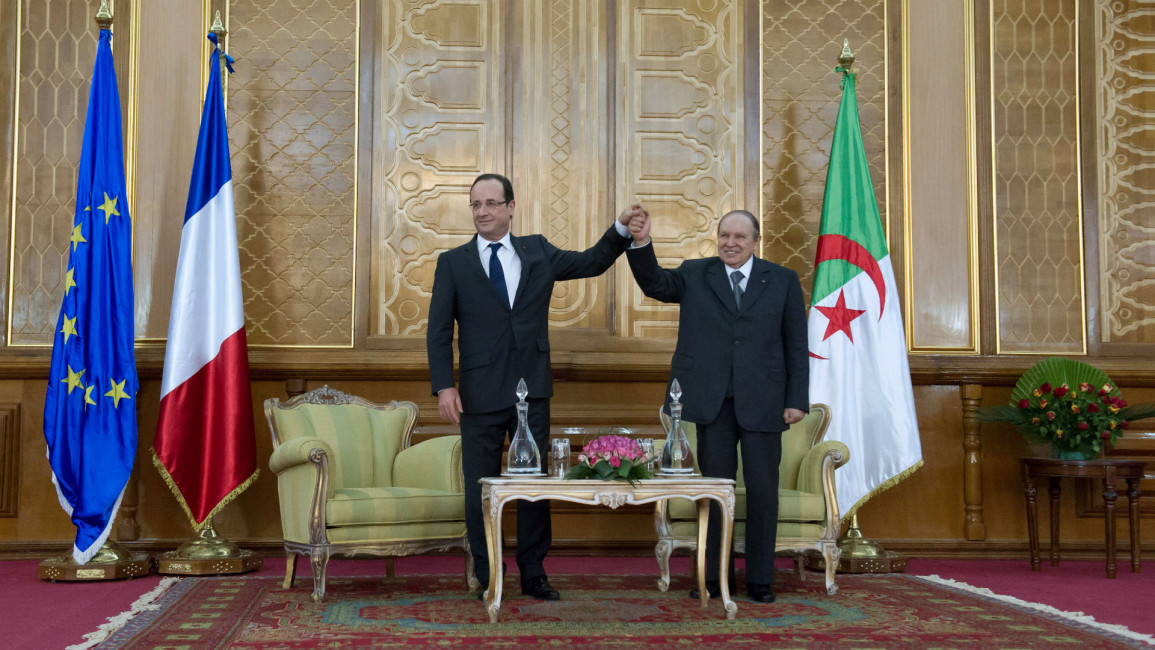
France rebuilds old colonial relations
Over the weekend of September 19 and 20, 2015, François Hollande, the president of France, dropped in on the king of Morocco, Mohammed VI, in order to re-cement an old friendship between their two countries.
His visit to Tangiers involved visits to a Renault car assembly plant, the opening of a service depot for Africa's first high-speed train line between Tangiers and Casablanca, and an agreement for French imams to be trained in Morocco's new Islamic academy.
It put the official seal on a reconciliation that brought to an end all the tensions that had emerged over the previous year.
These had begun when a Moroccan security chief, Abdellatif Hammouchi, had been interrogated by the French police over allegations of torture made against him by Moroccan exiles in France - he is now to be placated by becoming an officer in France's "Légion d'Honneur".
The tensions were almost immediately raised further by the French ambassador to the United States who, when commenting on French support for Morocco over the Western Sahara, remarked that his country's relationship with Morocco was akin to the loyalty felt towards an old lover when passion was spent.
Then the Moroccan foreign minister was humiliated by a strip search when he arrived at a French airport, and the security around a Moroccan general recuperating in hospital failed to prevent another exile from verbally attacking him.
Not surprisingly, diplomatic relations became frosty and the Moroccan press was unbridled in its irritation, reminding public opinion that the colonial period was over and blaming France for the deterioration in relations.
| Diplomatic relations became frosty and the Moroccan press was unbridled in its irritation |
More seriously, Morocco refused to show any solidarity with the French government over the deaths of the Charlie Hebdo cartoonists at the start of this year, and suspended judicial cooperation and cooperation over terrorism.
At the beginning of this year, the French foreign minister promised to work to improve relations and a new judicial cooperation protocol was signed.
King Mohammed VI made a private visit to France, in which he saw the French president to signal that the diplomatic spat was now at an end.
First Algeria, now Morocco…
President Hollande's recent visit, then, is the official endorsement that warm relations have been fully restored.
It mirrored a similar but much briefer visit in mid-June to Algiers to discuss economic and security matters, which was also designed to seal reconciliation between France and Algeria, in the wake of ruffled Algerian diplomatic feathers and concerns in Algiers about French security intervention in Mali.
That leaves only Tunisia where France has still to build up old relationships after its gaffes in early 2011 - when it appeared to have been supporting the discredited Ben Ali regime.
Yet, even there, the relationship has been largely repaired and the French president has personally sealed the reconciliation with two visits, one in 2013 and the other immediately after the attack on the Bardo museum in March.
The reasons for this French diplomatic anxiety over good relations with its former North African colonies are, however, complex.
France may be important to the countries of the Maghrib as a trade partner - it consumes 22.6 per cent of Morocco's exports and provides 12.5 per cent of its imports, and provides around seven percent of Algeria's total trade.
But more important, perhaps, are France's minority communities, where those from northern Africa - mainly from Morocco and Algeria - make up 31 per cent of the country's five million-strong non-EU ethnic minority, itself eight percent of France's total population.
It is certainly the case that France is a very important source of remittances and investment for its North African partners - 40 per cent of Morocco's remittance payments come from France, for example.
Yet even this does not explain the intensity of the relationship.
The real reasons seem to reflect a legacy of the peculiarly penetrating nature of North Africa's colonial experience.
| The real reasons seem to reflect a legacy of the peculiarly penetrating nature of North Africa's colonial experience |
There were significant differences in the nature of France's relationship with North Africa nations. Algeria was administratively an integral part of France from 1848 until 1962, whereas Tunisia and Morocco were "protectorates" - in which indigenous forms of governance were formally preserved.
All, however, were subjected to colonial settlement and to France's "mission civilisatrice". This involved profound cultural and linguistic penetration of their societies, leaving traces even today - and goes to explain much of the ambivalence that North Africans feel towards France, their "frère-ennemi".
French imperatives
Conversely, for France, the preservation of this cultural hegemony, as expressed through its vision of la Francophie and its active engagement with former colonies through its cooperation programmes and its willingness to provide - particularly in Africa - military aid, has been a constant of French foreign policy feature since the 1960s.
Yet these relationships also have a wider connotation, too, in preserving the French self-image of France as a focus of revolutionary Enlightenment values and as an alternative to the hegemony of the Anglo-Saxon alternative.
Latterly, this has even been a weapon against German dominance in Europe, as when France attempted in 2007 to define the Mediterranean as its own chasse-gardée, rather than as a European preserve, through Nicolas Sarkozy’s vision of the Mediterranean Union.
Germany blocked that initiative then, but France still has its own unique diplomatic clout in North Africa. No wonder President Hollande is anxious to preserve his links to Algiers, Rabat and Tunis.
George Joffe is a research fellow at the Department of Politics and International Studies at the University of Cambridge and visiting professor of geography at Kings College, London, specialising in the Middle East.
Opinions expressed in this article remain those of the author and do not necessarily represent those of al-Araby al-Jadeed, its editorial board or staff.



